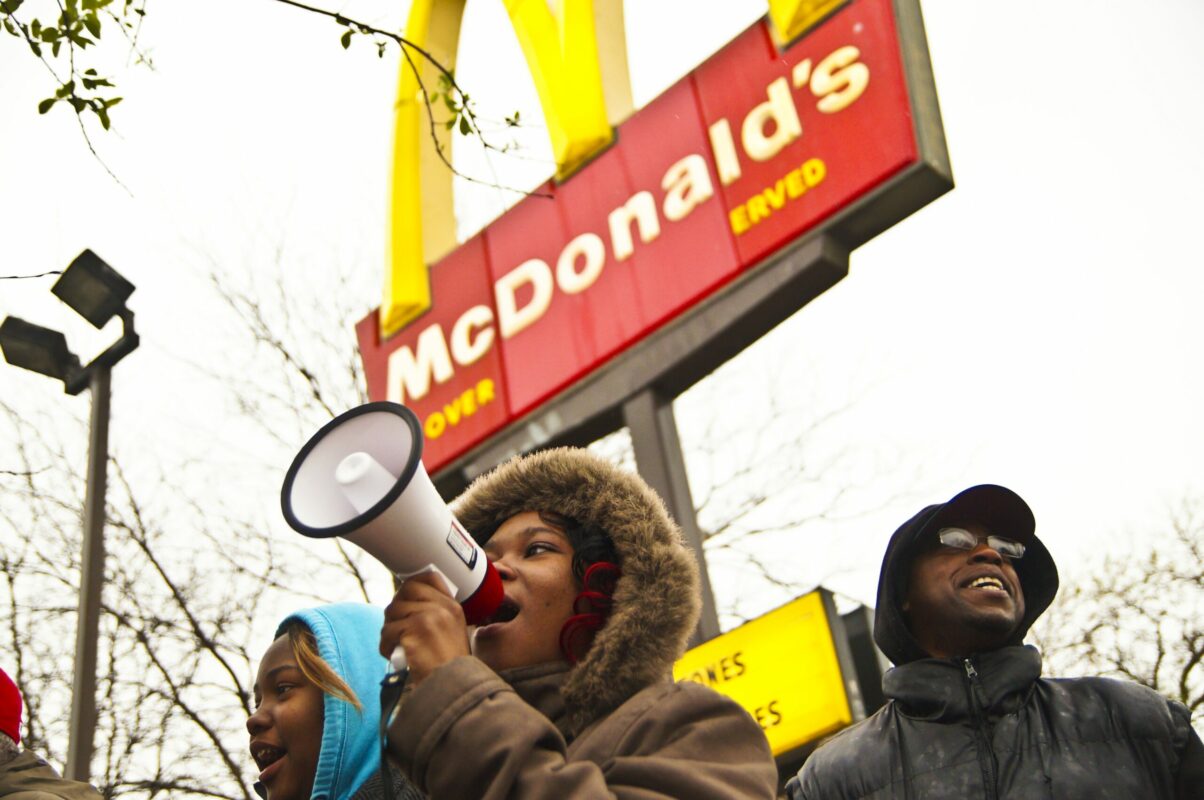Workers suddenly enjoy newfound clout in the emerging post-pandemic economy. With lots of employers desperate to fill a stockpile of new positions as retail outlets spring back to life in a vaccinated America, a short-term worker shortage has emerged. Republicans and their business community friends are furious, blaming a lazy workforce, and the press is helping their cause by shining a spotlight on employer complaints, while paying far less attention to employee priorities.
Republicans are loudly braying that President Joe Biden is to blame for the sea of “Help Wanted” signs, as GOP governors across the country take the extraordinary step of cutting off additional unemployment benefits for their struggling citizens. They’re refusing the funds even though the benefits, $300 a week until September, are paid for entirely by the federal government, as part of the $1.9 trillion Covid-19 relief package signed into law.
“We are currently facing a labor shortage created in large part by the supplemental unemployment payments that the federal government provides,” South Carolina’s Republican governor announced, while turning down millions in aid, much of which would have been spent by residents inside red states, thereby boosting local economies.
Republicans have been cheered on by the Chamber of Commerce and other deep-pocketed interest groups which are demanding the government somehow make people go back to work often for low, stagnant wages, under poor working conditions, and while punching the clock for huge corporate employers that pocket billions in profits. (The median hourly pay for American fast-food workers in 2020 was $11.47, the same year McDonald’s posted $5 billion in profits.)
First off, rarely have we seen an unproven economic hunch like this treated so seriously by the press. The vast majority of the news coverage simply accepts as fact that government benefits might be keeping people from returning back to work. Even though that same coverage rarely includes a single piece of empirical evidence to back up the claim. (Economists have found no proof to support it.)
Writing in the Washington Post, Megan McArdle announced unequivocally that the $300 stimulus checks were “holding back the economic recovery,” by giving people a strong disincentive to work. McArdle’s proof? “Anecdotally,” she was sure it was true.
Over and over that pro-business talking point has been echoed in local news coverage, as well. When WKNB in Youngstown, Ohio, reported on the Republican governor cutting off employment benefits, only business owners who supported the move were quoted, no workers. Same with a local report from the Albany Times Union in New York, which quoted a restaurant manager blaming the worker shortage on the government for “giving them all the money to stay home.” No workers were interviewed.
That GOP narrative misses an important story unfolding as America emerges from the pandemic: Long-held assumptions about how we live are being scrambled. For instance, as more schools nationwide reopen, millions of schoolchildren are opting not to return to in-person learning, just like millions of Americans, for now, are currently choosing not to return to the workforce.
If the claim is that workers are staying home because the government is paying them in $300 weekly checks, what’s the reason students are staying home, since there’s no federal financial incentive to do so?
Answer: Priorities and lifestyles changed during the pandemic.
The Philadelphia Inquirer’s Will Bunch recently nailed it in a column:
A year of lockdown has scrambled our ways of thinking about the workplace and where our paycheck fits into the broader meaning of life, our concept of what a job is worth, and — and here’s where things get really interesting — who hold the upper hand? For the first time in decades, American workers are wondering … who’s the boss?
Maybe the glut of low-paying jobs isn’t a sign of American slothfulness — it’s a growing sign of worker awareness and self-preservation.
Over the last four decades worker productivity in the U.S. has increased nearly 70 percent, but pay for hourly workers has only gone up 11 percent. People are working more efficiently, producing bigger profits for companies, and not being properly compensated.
That’s the more important story, and it’s going largely ignored by the mainstream media, which seem more interested in helping Republicans shame workers, as they deny additional unemployment benefits to two million people in red states.
Meanwhile, the press frets over the plight of employers while breezing past worker priorities. The New York Times last week did a long, front-page piece looking at businesses in Rehoboth Beach, Delaware, struggling to find workers and stressing that government benefits are keep applicants away. The article featured the owners of Dogfish Head Craft Brewery. But how much was the brewery willing to pay employees as owners complained that they couldn’t fill their slots? That’s important context in terms of how businesses are responding to the workforce shortage. If they refuse to significantly raise the rates they pay, should readers be sympathetic to their hiring plight and their claims that the Biden administration is responsible for the shortage?
But the Times article never reported how much the brewery paid. Down at the final sentence in the article, readers were informed, “When asked if it was raising pay, Dogfish Head said it offered competitive wages for the area.”
Shorter answer: No, the brewery likely isn’t paying higher wages. But the brewery is complaining about its worker shortage — a complaint the media gladly amplify.
